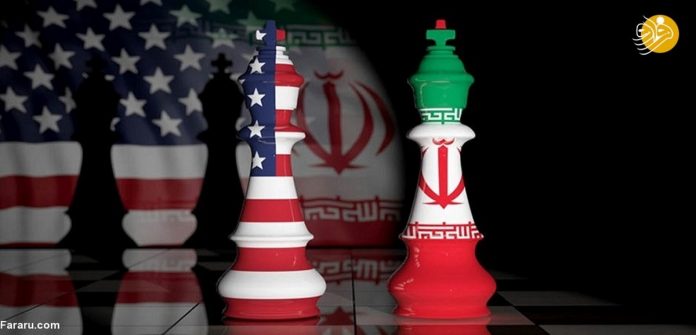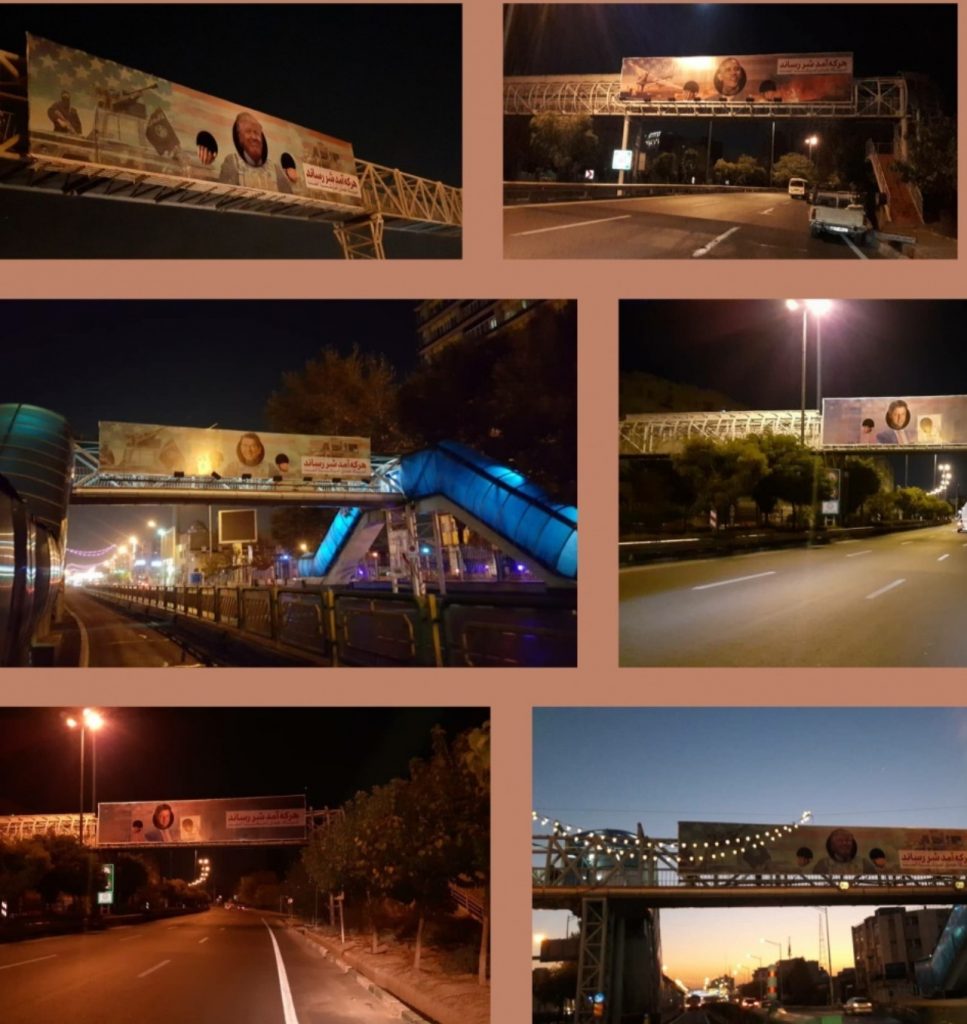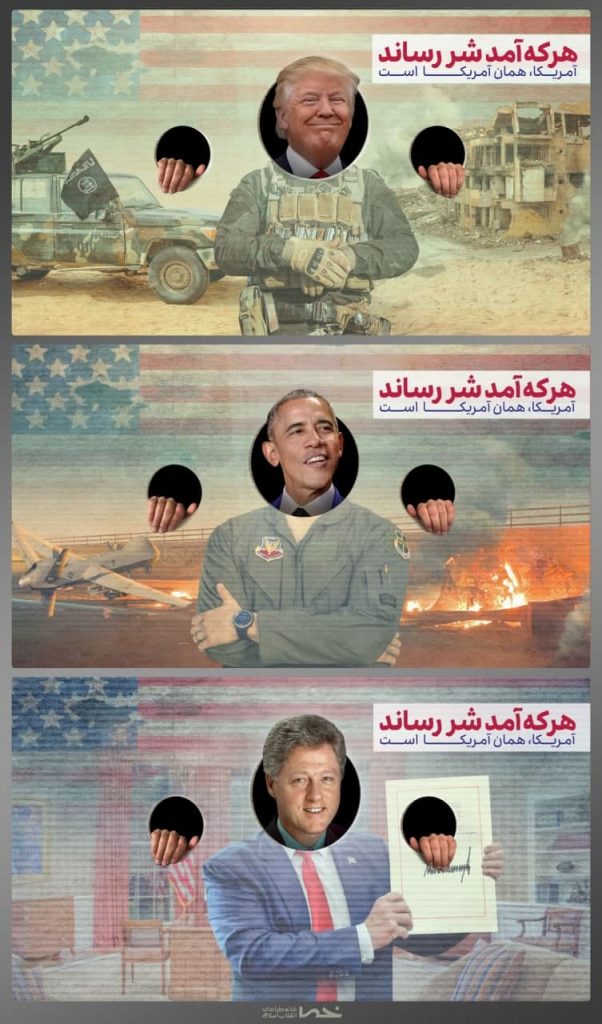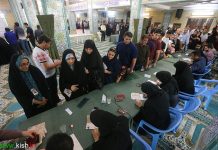The Iranian political leaders claim that it is not important for the Iranian people who sits in the white house as the president of the United States. But the Google Search Trends shows Iran as one of the countries at the top list in following the US 2020 election worldwide (the list might not be accurate but is insightful). As a person living inside Iran, I have never seen anything like that before. From a few weeks before the election, everyone was speaking about who wins the election and how it will affect their lives.
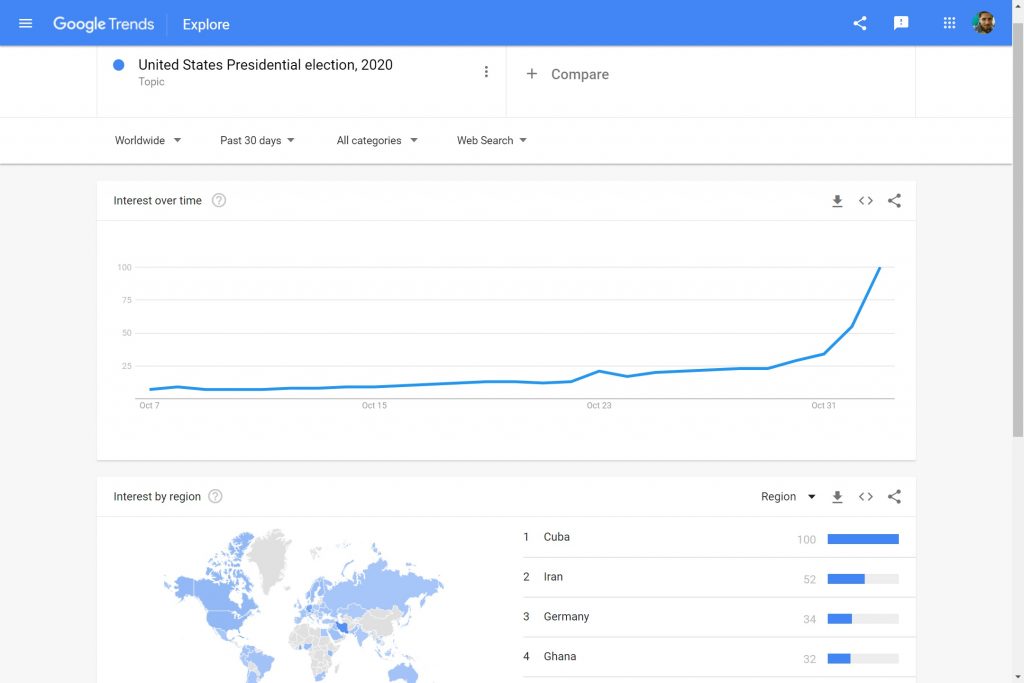
Iran-US disputes
Iran-US disputes are not something new. It dates back to the first days of the Islamic Revolution, especially when Iranian university students occupied the US embassy in Iran, seized its staff for 444 days, and found documents showing the role of the US embassy in spying and coup planning. From that time on, Iran and US governments became real ‘enemies’ fighting each other in different forms: proxy military attacks, together with political, economic, and media wars.
Each of these fields of war can be the subject of a separate post. But none of these wars has been as suffering for Iranians as the economic war. That’s because Iran is not armed enough for this war to attack or even defend. With its weak oil-based economy, the economic war is affecting everyone’s lives but mostly the poor ones in society. The thesis behind this war in one sentence is: livelihood difficulties, raising social dissatisfaction, and therefore making internal social pressures against the government forcing it to give up.

The main weapon in this war is economic sanctions. These sanctions are enforced much in the recent 10 years and maximized with the Trump ‘maximum pressure’ strategy. In this strategy, most of the large Iranian companies are blacklisted in International trade. Many companies around the world are punished by the US government because of having direct or indirect trades with Iran. The central bank of Iran and all other banks are banned making international dollar exchange almost impossible. Hence, Iran can’t export its oil and any other goods or transfer the oil sales money inside the country. Therefore, there is a lack of international currency even to import life necessities. As a result, the Iranian Rial currency is devaluated much in these ten years. In 2011 each dollar was equivalent to 1200 Tomans. It is now jumped to about 25000 Tomans (20x) at the end of 2020. It means everyone is now poorer, the inflation rate is higher than 30%, and economic inequality has aroused. This situation may define why Iranians are observing US election results more carefully than ever.
Iran-US Negotiations
The 2013 presidential election in Iran happened just after the initial economic sanctions by Barack Obama and other countries. This election is called by some analysts as a referendum for negotiations with the US. Hassan Rouhani who spoke in support of the political negotiations with the world powers won with 51% votes of all participants in that election. After about two years, he reached an agreement with 3+3 countries known as JCPOA -BARJAM in Persian.

JCPOA has definitely had political benefits for Iran. The international UN security council statements against Iran were suspended and Iran can advocate its mentioned rights in JCPOA. However, it had absolutely no economic gains for Iran (even before Trump). You can’t find any Iranians who think JCPOA has made their life better. When Trump became president, the US officially exited JCPOA and enacted harder sanctions on Iran.
The Iranian revolutionaries -including the supreme leader- were always against any type of negotiations with the US (and Israel). Now, after five years, the experience of JCPOA has confirmed their position. They argue that any negotiations with the US will only be a loss for Iran. The US will impose its wants immediately and won’t act on any of its future promises. And if you resist the bad promise, they put intolerable global pressure on you with their powerful media. Moreover, they believe any type of negotiations will be on the military defending power and Iran’s regional presence, something that no country negotiates on (think that you negotiate with the enemy that wants to completely overthrow your power by giving up your weapons!).
Now, the Trump era is finally over. Earlier than all of us would think of. But Iranians understood that the US can destroy millions of their lives more than they imagined. And more than that, they learned the world powers care only about sustaining their own power. International politics is not a matter of trust, benevolence, or humanity.



